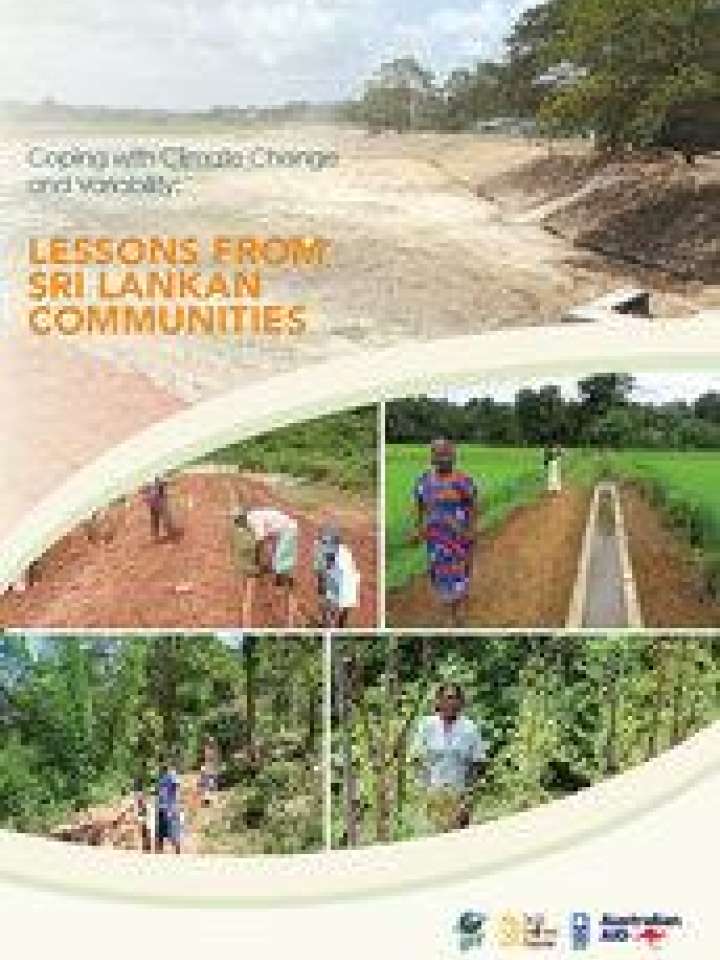Coping with climate change and variability: Lessons from Sri Lankan communities
This publication captures the lessons and documents the important challenges faced during the five years of the implementation of Community-Based Adaptation projects in Sri Lanka. This document seeks to improve the country’s strategic focus on adaptation to climate change.
Some of the best practices that emerged from project implementation are (p. vi):
- A strong local presence of the civil society organisations entrusted with project implementation permitted greater investment in local capacity building and retention of that capacity in the villages.
- High level of cooperation from government officials, technical institutes, and extension services such as from the Agriculture Instructors working in the districts meant that the government was on board and engaged to provide solutions and ensure post-project sustainability.
- In every location strong and active farmer/community organisations either existed or were initiated through the projects to implement and upkeep the interventions.
- A number of technical best practices were successfully undertaken through the project, including seed and crop selection, agronomic practices such as improving soil quality, crop-livestock integration, land management, water harvesting and improving kitchen gardens.
Proceedings of the National Workshop on Community Based Adaptation Colombo, Sri Lanka - July 16-18, 2016
Explore further
